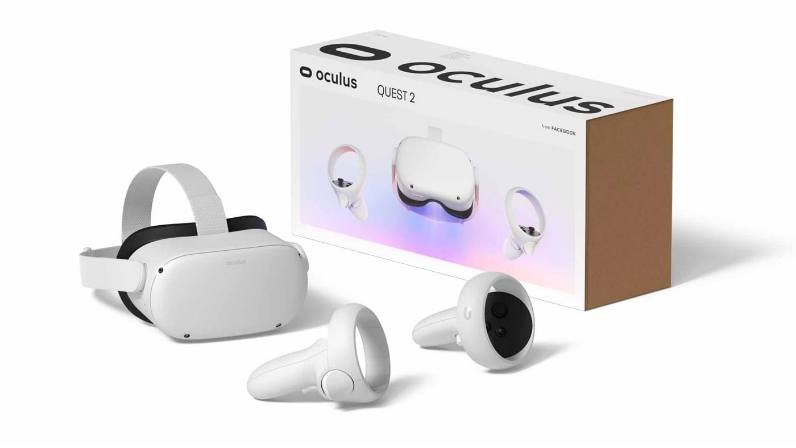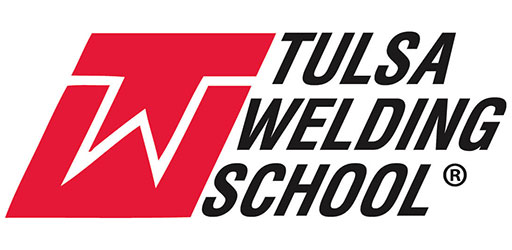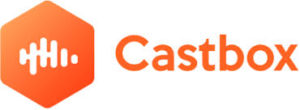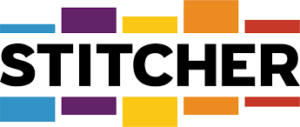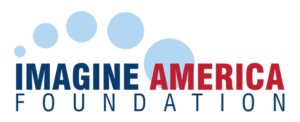Bob Martin: Hello and welcome to the first episode in our skilled trades career series on Imagine America Radio, with today’s focus specifically on skilled trades careers. Joining us today is Chase Lane, vice president of transformation for StrataTech Education Group, and Alex DeClair, the director of welding training. For those of you who do not know, the StrataTech Education Group focuses on the acquisition, growth, and development of specialized career education schools—particularly skilled trade programs designed to address this nation’s growing infrastructure needs. Very important. The company’s Tulsa Welding School subsidiary was founded in 1949 with campuses in Tulsa, Oklahoma; Jacksonville, Florida; and Houston, Texas. Tulsa Welding School is accredited by the Accrediting Commission of Career Schools and Colleges, or ACCSC. It is a member of the American Welding Society. StrataTech Education Group also runs the Refrigeration School or RSI, which was founded in Phoenix, Arizona, in 1965. RSI trains students in the technical services that are needed today in the challenge—and it challenges the students to reach their highest level of academic knowledge and leadership capabilities. RSI is also accredited by ACCSC. Today we’re going to talk about specifically welding. As a leading provider of welding education, we couldn’t think of anyone better to talk to than Chase and Alex at StrataTech. As we understand it, you have a brand-new program called OcuWeld. It sells very—extremely interesting as we looked at it. I hope you take a minute, Lane, initially and just explain the program a little bit to us, please. |
Chase Lane: Yeah, absolutely. Well, thanks Bob and Lee very much for having Alex and I. We really appreciate that and thank you for the introduction. We’re also very excited about OcuWeld. So, what is OcuWeld? Well, OcuWeld is a new and innovative virtual reality welding simulator. And I think there are kind of two really important points with this that we think makes it in particular very exciting, Bob. And the first one is that this was really, truly designed from the ground up by our welders who are experts in what they do and designed in a way to be aligned with our academic curriculum. So very, very focused on teaching the core skills, knowledge, and capabilities necessary to be a welder, but doing that in virtual reality. And the second really exciting thing about this is virtual reality welding is not new in and of itself, but what is new that we’re doing is bringing it to the kind of consumer market with the Oculus Quest 2 headset. So, this is something that is relatively affordable, something that a lot of your listeners might be getting for the holidays here coming up soon. But it’s exciting because it really lets us get our software out at scale at a price point where we can serve a large student population and even beyond that. So OcuWeld is kind of that intersection of welding virtual reality and student availability, and we’re excited to roll it out shortly. |
Lee Doubleday: Yeah. I was struck by—and I watched the video on the website, and we’re going to have a link to the website in the podcast notes for all the listeners to be able to go and check it out. And I highly recommend that you do because I think it does a really good job of explaining what this is. But the Oculus 2 will be—I’m sure our listeners know what it is, but there may be some that don’t. What is the Oculus Quest? |
Chase: Yeah, that’s a great point, Lee. So, the Oculus Quest is a consumer virtual reality headset that is put out by Oculus, which is a subsidiary of—formerly Facebook, now Meta. And I’m sure we’ll talk later about the metaverse and all the implications around that. But really, it’s a consumer virtual reality headset. So almost think of it like a cell phone. It’s got the processing power of maybe a cell phone. It’s got 64 or 128 gigabytes of storage. And it’s a goggle. You put it on your face, and you’ve got two controllers that sit next to you there so that you can control the device while it’s sitting on your head and access not just OcuWeld, right, but a whole slew of virtual reality applications. And really, the Oculus Quest 2 is exciting because it’s going to really open up this concept of the metaverse and really let a lot more people access virtual reality than had been able to before because of the price point and because of the ubiquity of the product this season. |
Lee: Right. And now, but if you enroll at Tulsa Welding School, you will receive the Oculus as part of your tools package, correct? |
Chase: Yeah. Exactly. Exactly. So, we’ll be rolling this out to students at our Phoenix location, RSI, and the original Tulsa Welding School in Tulsa in January of 2022. And then our larger campuses in Houston and Jacksonville—we’ll expand to those campuses kind of after that pilot’s launch, probably in the March or April timeframe. But yes, if you come and enroll at one of our programs, our intent and goal is that when you get your tools, you’ll also get an Oculus headset loaded with OcuWeld that you can use in your curriculum and in your learning. |
Lee: Yeah. Yeah. So do you think that higher education needs to be more technology—or technologically innovative—to integrate digital into student learning resources? |
Chase: Yeah. I unequivocally believe that it does. I was telling you a little bit about my background. And I am an educator by trade. I was in the military for about 10 years—and for three of those years, I was a professor at the Air Force Academy. And that’s really what sparked my interest. I was lucky enough to teach a course about technology innovation, and it really opened my eyes just to the power that bringing digital technology has with respect to educational outcomes and lifelong learning. And I think that that’s an area that’s been missing in the skilled trades a little bit, Lee and Bob. It’s obvious why it’s missing, right? The skilled trades are very hands-on. And we will always be a hands-on company with hands-on training first. But if you put yourself in the mind of a student who is considering a career in the skilled trades, who is considering an alternate path to four-year college, I think a lot of times—if you consider that—you often have to give up the thought of staying technologically current with your education. So, I think that because of how important it is to this generation of students and learners and young adults to be integrated with technology and to be at the forefront of where we’re moving as a technological society, I think bringing that technology into a format like the trades is critical. And I think it’s also—we don’t even need to really touch on the whole idea of the pandemic because I’m sure your listeners are well aware of what’s been going on. But there’s also just a necessity—a real necessity—to figure out how we deliver training in an environment that we’ve been dealing with for the last few years. So, I think if you look at where we’re going as a society, everything is becoming digital. We have large technology companies rebranding themselves around this idea of the metaverse. COVID has accelerated this. Online enrollments are skyrocketing, but at the same time, students are becoming less attracted to the idea of four-year college but more pulled in the direction of technology. So, we really think that bringing tech into shorter professional programs—like those that are designed for the skilled trades—can kind of hit both ends of that. Keep us current with what the students need and want from a learning perspective, but also make sure we’re aligned with where we’re going as a society, which is more and more digital. And the trades that our students go into—the construction trades—you will find augmented reality and virtual reality in the construction trades today, and we want our students to be prepared as they advance in their careers to integrate and understand how to work with these types of technologies. |
Lee: Yeah, I commend you. It sounds like you did a lot of research and listened to your consumer, and you understand the direction that the industry is moving in and came up with a really great program. But what do you expect the major outcomes for OcuWeld to be? Will it address the skills gap and demand for skilled professionals and why? |
Chase: Yeah, that’s a great question. So, when I think about the skills gap and the demand for skilled professionals, I think about it in three stages. The first is you have to attract people to the skilled trades, right? That’s point number one. Point number two is when you get them into a skilled trades program, you have to keep them and make sure that they’re well-supported and able to graduate from and build those skills in the program itself. And then finally, the third aspect is the students have to be prepared for employment and the employers have to demand those skills, right? So, when I think about OcuWeld and how it can help address the gap in skilled trades, I really think it addresses all three of those components. And I think the first component—getting students interested in the skilled trades—we kind of just talked about that before, but I think if you can help a student or a potential student learn the same way that they play—or play the same way that they learn, right, get them interested in that technology and the intersection of technology in skilled trades—I think you can really get students excited about skilled trades in a way that that they haven’t been in a long time, because folks my age or younger have been told that the only path to success is a four-year college. And so, I think OcuWeld and technologies like it can really change kind of the conversation around that at the entry point. And then, when we’ve got them on campus or in these programs, I really think OcuWeld is going to go a long way to accelerating learning. And I think it really comes in two ways: access and autonomy. The first thing is access. This technology gives students the ability to weld 24 hours a day, 365 days a year. I mean, it’s not a joke to say that a student could finish welding in the lab and be welding again in a facsimile of the same lab in virtual reality on the bus ride home, right? Or on the train ride home. And I think that access to that lab is because it can be so much more pervasive is going to enable students who are motivated to really build those skill sets and repetitions on their own time. And I think that leads me to the second point on autonomy. If you’re a student and you’re struggling with a particular process or a particular weld position—our instructors are amazing, but our instructors are one instructor for 20 students. So, the instructor can’t be there always to individualize that learning. But with this type of a technology—especially when it’s piped into our learning management system and we have all the data—our instructors and our students can really be more autonomous and more individualistic in the way that they direct learning because there’ll be so much more data and so much more access to the lab. And then on the backend of that—like I mentioned, our employers, they want high-quality welders, but they also want folks who are prepared to succeed in the future. And our students want to succeed in the future. And as they advance in their careers and become more senior, I think it’s very likely that they’ll interact with augmented and virtual reality more and more. And so, I think for those three reasons, OcuWeld is really going to help attack this gap, which is really important for our country right now. |
Bob: Chase, this is Bob jumping back in. I got so excited listening to you because I’m thinking—here’s what I’m thinking. How long—it’s not going to take very long for a forward-looking employer to say, “I need a particular new kind of technique used,” or whatever it may be. “Let’s develop something that we can put on OcuWeld and we can give our employees—show them how to do it,” and it becomes an ongoing in-service kind of thing. I mean, this is very, very exciting and in particular—maybe not to the older employees. But as you’re moving these younger men and women in that are—I think it gets to their expectation, which is they’re going to—once you’ve shown it to them and you—it’s like the camel. Once you get the camel’s nose under—in the tent, you got the whole camel. So once you show them, with OcuWeld, what you’re talking about, it’s not going to take very long until the forward-looking employers are going to say, “I want to use this technology. I want to use this, what these guys have put together to show them the latest stuff,” because there’s different things going on all the time. Am I right or am I—? |
Chase: Oh, yeah. You’re absolutely right. And this actually might be an area for Alex to jump in on because Alex has been out there. Alex is actually a graduate of Tulsa Welding School as well, Bob, which is pretty amazing. And he’s really come full circle, but Alex has spent a lot of time out in the field and has done a lot of exotic welding. And so, Alex, I don’t know—what’s your opinion on this? My opinion is that employers certainly could find value in something like that. |
Alex DeClair: I like Bob’s question there. You’re already seeing it in the medical field, in the construction field, where employers and hospitals are adopting VR and AR equipment, and they’re upskilling their current employees—their doctors, their nurses, and all that. So, I don’t know why we couldn’t do that in welding. I don’t know why welder or welding employers couldn’t adapt our technology, give it to their employees, and upskill them as well. So yeah, I think there’s a lot of applications for it. |
Bob: Yeah, real quickly, we should have properly introduced you, Alex. But Alex, you are a educator. You were first a student, then you were an educator, and now you’re a director. Give us the benefit of that kind of continual—that flow that you’ve gone through and what you see, because you’re probably looking at it in different ways at different parts of the road as you’re going down that road, right? |
Alex: Yeah, absolutely. I mean, that’s a great point. I actually attended Tulsa Welding School back in 2011, so just about 10 years ago. So, I had no welding experience whatsoever. I came into Tulsa Welding School kind of with a hope and a dream to become a welder and kind of made it to the big leagues, as I call it. I worked in the oil refineries and chemical plants and power plants for about five years. I traveled around the United States, did a lot of pipe welding. I did some fabrication in Phoenix, Arizona. And then about four years ago, I became an educator with RSI, which is under the umbrella of StrataTech. And I started teaching about four years ago. And honestly, I saw a billboard that RSI was opening up a welding school in Arizona, and I knew I had to be a part of it. And since it opened, I’ve been here. And I’ve really clicked with it and I’ve loved it. I’m extremely passionate about it. I love helping these students. I believe in bringing these students off the street that maybe had no experience whatsoever and then giving them a career that’s going to last their whole life. And I’m living proof of that. I had no welding experience. I didn’t know what I wanted to do in high school. College wasn’t my route. And then I became, essentially, an overnight success because of welding school. So, I try to pass that on to the students, and that’s really what’s driven my passion. And then I was lucky enough to be a part of this OcuWeld thing over a year ago, and it’s amazing. Everything that welding has done for me—and Tulsa Welding School. So, it’s all because of this is the reason I’m here. |
Bob: Yeah, you lead me to the next question, which is you’ve been a student. You’ve been looking at schools and looking where I want to go, what I want to do. How are you sensing—the acceptance of this next generation of students to accepting this technology and moving into what they do? |
Alex: I would say before we had this technology, we were doing good. We were enrolling students and all that. But I think we all saw a decline coming just because there’s a skills gap shortage everywhere. And people just aren’t interested in the trades like they used to be. And, I mean, that’s the honest answer. But I feel, with this new technology, that we’re going to capture so many people. I think welding is not on the radar of a lot of high school students. But who’s to say they put on an OcuWeld headset, they play with the VR system, and then, boom—now they want to become a welder? I truly believe that’s going to happen a lot. I think we’re going to have a lot of cases where we’re going to change a lot of minds because of this VR system. |
Bob: Yeah. And another interesting thing—and Chase talked about it a little bit earlier, all your trends are going your direction—which is if Congress gets its act together and actually does something with infrastructure that’s meaningful, what’s that going to mean for welders? I mean you don’t have to go very far to see those people. And you also don’t have to go very far to see how many of them are changing. They’re going to be—they’re getting older. They’re moving out. You got this younger generation coming in. I mean what do you think? From an educator standpoint, what do you think is the best part of OcuWeld? What do you think when you look back at it? |
Alex: Oh, I mean, Chase brought up a lot of good points, but I think just enhancing that learning ability, hopefully making that learning curve of welding a lot quicker. The biggest thing with welding is learning that muscle memory, just getting time under the hood, positioning your body, welding over and over and over. And when we started developing OcuWeld, that was our main focus. And we kept that focus all the way through of how do we replicate that muscle memory? How do we make this feel like real life? And we kept that our main focus. And I mean we walked away with a golden ticket, really. Every weld you practice in OcuWeld, you feel like you’re actually welding. You have to position your arms and your body just like you would be in the lab. And that’s how this is really going to set ourselves apart and make our students so much more successful—a lot quicker. |
Lee: Yeah. I just want to piggyback off of that. I mean what we’re talking about here is supplemental to the in-person welding experience. But for something like welding, it’s kind of hard to do homework, right? I mean you have to have a lot of stuff to be able to weld at your house—but now, maybe not. You got a virtual reality situation where, like you said, Alex, you’re going to learn the muscle memory part of welding, which is the important aspect—or is a important aspect of that—that you’ll get practice at home, which is a first. I mean unless you have [crosstalk]. |
Alex: No, no. I guess you’re absolutely right. I go back to my welding days when I was learning how to weld. And I was working a job. I could only go to welding school five hours a day, but I knew I needed more time. So, if I had this tool at my leisure, where I could go home and practice even more—say I was struggling with a weld at school and I had to wait a whole another day to go back and practice, heck, I could go home that night and practice that weld at home without needing a $5,000 machine, without needing thousand dollars in consumables and gas and electric. I can literally just go home, sit on the couch, at the dinner table, and practice what I was doing at school. |
Lee: Gamechanger. |
Bob: And then, Alex, your employer says, “Hey, I got this new job at a higher pay grade. You got to have this particular skill.” I’m envisioning they go back. They can go back in the comfort of their own home and practice whatever that new skill is and get qualified for that new job and that new pay grade. Am I right or am I wrong? |
Alex: No, you’re absolutely right. And I’m going to bring up a couple benefits of Tulsa Welding School, the first one being even after a student graduates our school, they can come back to any of our campuses any time and practice welding for free. But they will also be getting an Oculus, like we talked about, that is theirs to keep forever and ever. So, if they graduate and they have this thing two or three years down the road and they need to upskill for a job they want to go weld test for, well, here’s an Oculus. Go practice that weld, and maybe that’ll help you get a job. |
Lee: That’s very cool. Bob: And I got to tell you, as someone who knows your schools and have been around you, I’m always impressed. I mean when I went back to your school in Tulsa, I met multi-generations of students. I met fathers and sons. I even saw—I remember vividly—a mother and a son in bays, learning, going through the same welding program. I mean you have a very, very long and proud tradition. And I’m so glad that you’re out on the edge. You are on the edge on this thing. You know that. But it’s very, very exciting. |
Alex: It is. |
Chase: Yeah, it really is. |
Alex: Yeah, and Tulsa Welding School’s been around for so long. And, like you said, all the generations going through. I mean we’ve proven ourselves as a welding school, and I think this is going to be our next thing that we show the world that we can do. |
Bob: Hey, Chase, before Lee and I wrap this thing up, is there anything you want to add for the listeners—your WWWs or your phone number? |
Chase: Yeah, yeah, let me go ahead and add that in, Bob and Lee. Thank you. And, again, this has been such a pleasure and really, really nice to speak with you two. And absolutely, we want folks to learn more about this. I would say the easiest WWW is just ocuweld.com or stratatech.com/ocuweld. Or you can just Google OcuWeld, and it’s probably the first result. I don’t know how many OcuWelds [crosstalk] these days. |
Lee: Yeah, that’s what I did. I just Googled them. |
Chase: Yeah. But please go ahead and check that out. And then there’s more information on there. There’s videos. And then, like we said, this will be rolled out at our Tulsa and Phoenix campuses in kind of the third week of January. So, it’ll be in the hands of students very soon. |
Bob: Hey, just let us know if there’s anything that we can do to help you. We would love to be part of any way that would make sense for your rollout. And I just want to thank you. This has been a very exciting edition of Imagine America Radio. And it kicks off, as I told you before, our skilled trades month that we’re having. And I think it kicks it off in a very positive and very forward-looking way. I want to thank our two guests from Tulsa Welding School—StrataTech—and I also want to thank my cohost here, Lee Doubleday. And we hope that all of you have a great day. And if you need anything, you need to know anything more about welding, OcuWeld, or StrataTech, please come to Imagine America and/or StrataTech. Thank you very much. |




